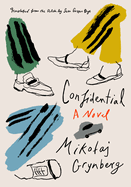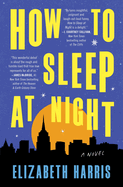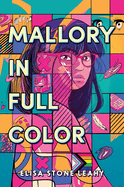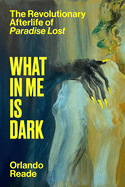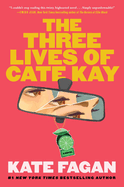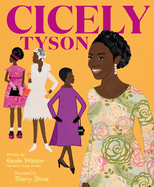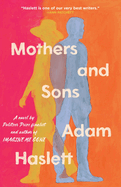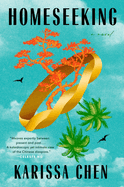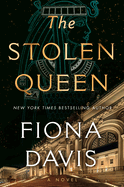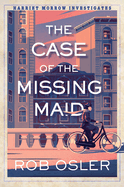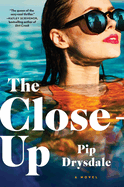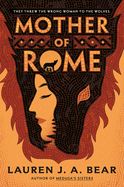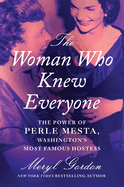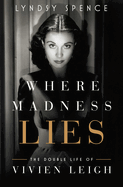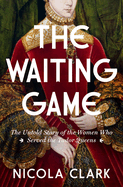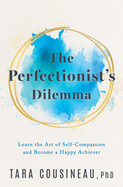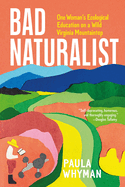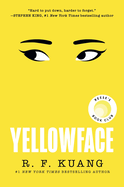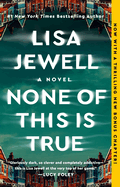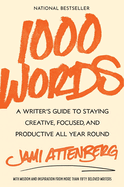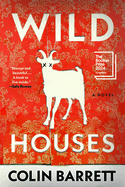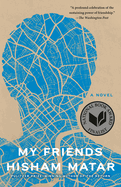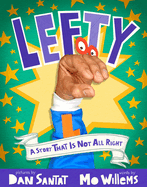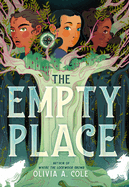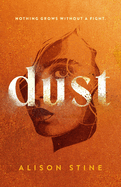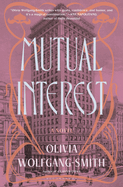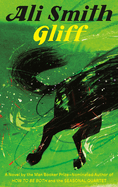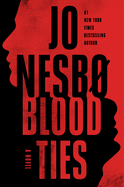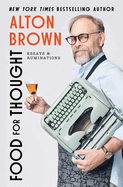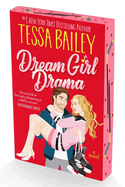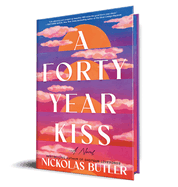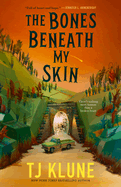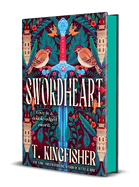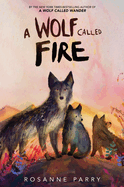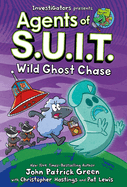Friday, January 10, 2025
One question darts through many of this week's terrific reading recommendations: Who am I? The Three Lives of Cate Kay by Kate Fagan is a fictional memoir about one woman's life lived under three names, resulting in "a captivating, heartfelt novel bursting at the seams with love in all its incredible, messy forms." And How to Sleep at Night by Elizabeth Harris puts social loyalties to the test "in the most scintillating and witheringly funny ways possible" for her debut about how far personal values can be stretched in politics and journalism. Plus, young readers are sure to enjoy the "punchy and empowering" middle-grade novel Mallory in Full Color by Elisa Stone Leahy, in which a 12-year-old's anonymous sci-fi webcomic suddenly goes viral
And for The Writer's Life, acclaimed novelist Adam Haslett considers the importance of writing about social isolation and its relationship to being overworked, while offering insight into the hard-won ending and difficult creative decisions involved in crafting Mothers & Sons.
Confidential
by Mikołaj Grynberg, transl. by Sean Gasper Bye
Confidential, Polish photographer and psychologist Mikołaj Grynberg's haunting, bitingly funny novella, begins exactly where his lauded story collection, I'd Like to Say Sorry, but There's No One to Say Sorry To, concludes. Returning translator Sean Gasper Bye ensures a seamless transition. Confidential's first line precisely duplicates the last sentiment of the earlier work's final story and continues: "I suggest you practice saying goodbye to your memories.... It's time to set time free." Storytelling enables that process of letting go, presented here as 27 exquisite chapters, so succinct that each could stand alone as individual narratives.
For one extended Polish family, one Sunday each month is reserved for lunch at Grandpa's. Despite Grandpa's grumpy predictability, "the most important thing is we're all alive and we're together." Amid the banter and (bad) jokes, the youngest grandson complains about Grandpa "always going on about Jews." When reminded they're all Jews, the boy retorts, "I'd rather be an Englishman."
Being Jewish, despite vastly different experiences from one generation to the next, is what connects this family. Grandpa and Grandma survived the Holocaust. Their firstborn--who survived five years until the liberation--became a respected physicist who had to go to Paris to be convinced to attend important conferences in Germany. His wife endured French orphanages until she was miraculously reunited with her mother post-war. Grynberg brilliantly composes his fiction with a photographer's eye. His chapters are reminiscent of snapshots ready to be compiled into an album. The act of reading encourages a careful piecing-together to create a beautiful family portrait--intimate, poignant, multi-generational--confronting the inescapable legacy of surviving (for some) the grievous Holocaust. --Terry Hong
Discover: Mikołaj Grynberg's outstanding Confidential is a collection of cleverly interlinked stories that reveal the lives of multiple generations of an extended Jewish Polish family.
How to Sleep at Night
by Elizabeth Harris
And the prize for the novel that best captures its political moment goes to... How to Sleep at Night, Elizabeth Harris's powerhouse debut, in which social loyalties are tested in the most scintillating and witheringly funny ways possible.
One day, Nicole Harmon, who lives in New Jersey with her husband and two kids, sees someone from her past on the TV news: it's Kate Keller, whom Nicole briefly dated when they were in their 20s. Kate is now a journalist with New York's Herald Ledger. Nicole decides to follow her on Instagram; Kate reciprocates.
Gabe Alter, Kate's best friend, is apoplectic when Kate confesses that she has hopped back into bed with Nicole: aside from being married, Nicole broke Kate's heart the first time around. But Gabe, a self-described outspoken Democrat, has his own problems: his husband, Ethan, who is Kate's brother, is running for Congress--as a Republican. This will ultimately test both Gabe's marriage and, when she learns something consequential to Ethan's candidacy, Kate's journalistic integrity.
How to Sleep at Night, which is suited to readers of any political stripe, teases a question throughout: Are loved ones owed our unwavering support even when their values depart from our own? Although none of the novel's central characters are cartoonish, there's some terrific buffoonery on the sidelines, and much humor comes from regional distinctions. After Kate tells Gabe that Ethan could win his race despite being a gay Republican--"This is the Northeast," she points out--Gabe counterargues, "This is New Jersey!" --Nell Beram, author and freelance writer
Discover: In Elizabeth Harris's powerhouse debut, social loyalties are tested in the most scintillating and witheringly funny ways possible.
The Three Lives of Cate Kay
by Kate Fagan
Kate Fagan offers readers a story within a story within a story in The Three Lives of Cate Kay, which takes the form of a fictional memoir by a wildly successful author who does not exist--in this world or in the one Fagan has imagined. Kay is nothing more than a pen name, the third persona adopted by the girl once known as Anne Callahan from Bolton Landing, N.Y. "Annie Callahan, aka Cass Ford, aka Cate Kay"--one person, one life, lived in three stories, with three names.
Kay prefaces her memoir with a plea to be loved despite her shortcomings, but as her story unfolds, it becomes clear that she is her own harshest critic. She even discredits her own ability to tell her life story; Kay argues with her editor, insisting on inviting those in her orbit (her childhood best friend, her first girlfriend, her first true love, to name but a few) to contribute full chapters. With footnotes from Kay throughout these insertions, along with excerpts from Kay's fictional bestselling trilogy, The Very Last, the final product reads less like a memoir and more like an annotated history of a person.
In her debut novel, Fagan crafts a beautiful story of one woman's life across three parts, and also fully realizes a moving post-apocalyptic trilogy that reveals as much about Kay--and what it means to be human--as Kay's own experiences. Fagan deftly explores themes of friendship, romance, intimacy, coming of age, coming out, ambition, and narrative form in a captivating, heartfelt novel bursting at the seams with love in all its incredible, messy forms. --Kerry McHugh, freelance writer
Discover: This captivating, heartfelt novel explores themes of friendship, romance, intimacy, coming of age, coming out, and narrative form.
Mothers and Sons
by Adam Haslett
It's hard to conjure a novel that more skillfully addresses the idea of moral ambiguity than Adam Haslett's Mothers and Sons. The fact that the book's two main characters have dedicated their lives to honorable pursuits makes the story's central ethical conundrum all the more shattering.
It's March 2011 when New York immigration lawyer Peter Fischer, an out gay man, meets 21-year-old Vasel Marku, who is seeking asylum; an Albanian citizen, Vasel was the victim of gay bashing in Tirana. Threaded through Peter's narration are chapters from the perspective of his mother, Ann, a former Episcopal priest who runs a women's retreat in Vermont with her partner, Clare. Peter hasn't visited his mother in years, but working on Vasel's case, which requires extracting from the young man a harrowing account of violence and frayed family ties, will compel Peter to turn to Ann and revisit something that happened when he was a teenager.
With formidable restraint and characteristic grace, Haslett (Union Atlantic; Imagine Me Gone) probes a question that's best summed up by one of Peter's old clients: "Why do you--who has comfort and a job and a place to live--why do you do this work? What am I to you?" From the novel's beginning, which finds Peter holding forth in a courtroom, through its gutting, perfect ending, which finds him far from his professional orbit, Mothers and Sons considers what it means when people in need are meeting the invisible needs of those who serve them. --Nell Beram, author and freelance writer
Discover: In this morally engaged and shattering novel, a gay New York immigration lawyer takes a case involving an asylum-seeking young Albanian man who was the victim of gay bashing.
Homeseeking
by Karissa Chen
Karissa Chen's stunning debut novel, Homeseeking, follows childhood sweethearts Suchi and Haiwen from war-torn Shanghai to the suburbs of Los Angeles, Calif., from 1938 to the mid-2000s. When they meet as children, Suchi is charmed by Haiwen's violin playing; he admires her bold, passionate nature. They fall deeply in love as teenagers, but war and circumstances tear them apart. The story of how they reconnect--and the lives they live in between--is a heartrending yet hopeful saga set against the backdrop of China's complicated 20th-century history.
Alternating between her two protagonists' perspectives, Chen paints a vivid picture of the longtang(neighborhood) where Suchi and Haiwen grow up. She shows their family members, including Haiwen's elegant mother and Suchi's daring older sister, Sulan, through each other's perspectives. Later, Chen takes her protagonists to Taiwan and Hong Kong, bringing them briefly back together before following their separate trajectories to the U.S. Along the way, she explores politics and propaganda; enticing opportunities and the limits of choices; family responsibility and hardship; and the enduring power of a long-ago love.
By the time Suchi and Haiwen reconnect as elders, they have changed: she goes by "Sue," he's "Howard," and they have both seen and suffered much. But Chen gives them, and her readers, a final chance to know and understand the deeper layers of each other's stories. Powerful, heartbreaking, and rich with historical detail, Homeseeking is at once a portrait of a country in turmoil and an intimate, poignant love song. --Katie Noah Gibson, blogger at Cakes, Tea and Dreams
Discover: Karissa Chen's powerful debut novel paints a lush portrait of 20th-century China through the intimate lens of a love story.
The Stolen Queen
by Fiona Davis
In her riveting eighth historical novel, The Stolen Queen, Fiona Davis (The Spectacular; The Magnolia Palace) takes readers on a journey from the tombs of ancient Egypt to Manhattan's Met Gala in 1978. Through the long-obscured history of a female pharaoh, Hathorkare, and a necklace made of amulets called a broad collar discovered in her tomb, Davis explores questions surrounding the ownership and display of ancient artifacts, ideas about female authority at different moments in time, and the necklace's significance to two very different women.
Aspiring archeologist Charlotte Cross originally found the necklace in Hathorkare's tomb in 1936--but the necklace disappeared during a tragic night that upended Charlotte's life. Now an associate curator at the Metropolitan Museum of Art, Charlotte is shocked when the necklace is loaned to the museum anonymously, but it's soon clear that someone doesn't want her asking questions. Meanwhile, fashion icon Diana Vreeland deputizes her assistant, Annie Jenkins, to ensure that the necklace is displayed at the gala. But when disaster strikes during the event, Charlotte and Annie join forces to uncover a plot whose threads stretch not only across continents but also back to Charlotte's past.
Davis immerses her readers in the glamor of Egyptian tombs, the Met's galleries of priceless treasures, and "the Party of the Year," while also conveying Charlotte's and Annie's shared determination to build successful lives on their own. As they head to Egypt in pursuit of a stolen artifact--and some answers--each woman must confront her deepest fears. Davis's novel is a glittering depiction of love, danger, and secrets both archeological and personal. --Katie Noah Gibson, blogger at Cakes, Tea and Dreams
Discover: Fiona Davis's glittering eighth novel explores female power and the ownership of ancient Egyptian artifacts as two women join forces to recover a priceless necklace stolen from the Met.
Mystery & Thriller
The Case of the Missing Maid
by Rob Osler
In 1898, opportunities were few and far between for young women wanting to live independent lives, as Harriet Morrow is determined to do in Rob Osler's vivid historical mystery The Case of the Missing Maid. This insightful series opener explores women's suffrage, underground LGBTQ culture, and Chicago on the cusp of the 20th century.
Four years after her parents' deaths, 21-year-old Harriet supports herself and her 16-year-old brother, Aubrey. In search of higher pay and work less "mind-numbingly boring" than bookkeeping, Harriet becomes the first woman operative for Chicago's Prescott Detective Agency. Even though she was personally hired by the firm's owner, Theodore Prescott, she isn't welcomed by the secretaries, who are all women, nor by the agents, who are all men. Her first assignment seems like busy work: Prescott's next-door neighbor, an older widow named Pearl Bartlett, claims that her maid, Agnes Wozniak, has gone missing. Pearl has a reputation for unreliability, but Harriet believes Agnes has been abducted. Harriet deploys her sleuthing skills to uncover Agnes's whereabouts, even as the atmosphere at the agency becomes more hostile.
The Case of the Missing Maid moves cleverly through myriad neighborhoods, clandestine drag events, and hidden gay bars. Harriet's life is a tower of secrets. She grapples with her fear of being further ostracized, even fired, if she's exposed as a lesbian. She must also frequently mask her intelligence so she won't be resented by others. Moreover, Osler (The Devil's Chew Toy) illustrates how controlling families, human trafficking, and corrupt cops are not just 21st-century concerns in this stellar novel. --Oline H. Cogdill, freelance reviewer
Discover: The first female sleuth at a Chicago detective agency investigates the kidnapping of a maid while trying to conceal her own sexuality in this insightful historical mystery series opener.
The Close-Up
by Pip Drysdale
Pip Drysdale's The Close-Up is a brisk, clever story of stalled ambition, celebrity worship, and betrayal.
Londoner Zoe Weiss thought her writing career would be a guaranteed success after she received a two-book deal with a $1 million advance for her debut thriller, Fractured, so she moved to Los Angeles, Calif., to "make something of [herself]." A few years later, Zoe is stuck. Her novel bombed, her advance is spent, and her self-confidence is gone. Her second manuscript is overdue, stymied by writer's block. Then she accidentally reconnects with Zach Hamilton, the hottest new action movie star, with whom she had a brief relationship three years earlier, when he was a bartender. The chance encounter gives Zoe a workable idea: a thriller about a celebrity. Her romance with Zach heats up, but so does her guilt about exploiting their relationship and her qualms about the nondisclosure agreement his manager made her sign. When a photograph linking her with Zach lands in a gossip column, Zoe begins to receive threats, just like those she chronicled in Fractured.
Drysdale makes the most of the shallowness and superficiality of the film industry, particularly through her well-crafted characters. Zoe seems earnest about her desire to be a serious writer, yet she also may be more interested in fame than the creative process. Zach comes across as charming, a bit naïve, and caught up with the glamour of being a movie star, but Drysdale adds a layer of ruthlessness to him.
The Close-Up follows an unpredictable path to a stunning, neo-noir finale. --Oline H. Cogdill, freelance reviewer
Discover: In this unpredictable suspense novel, a writer whose career has stalled believes she has found a workable idea: a thriller about a celebrity, based on the actor she is dating.
Science Fiction & Fantasy
Mother of Rome
by Lauren J.A. Bear
Mother of Rome by Lauren J.A. Bear (Medusa's Sisters) is an inventive reimagining of the origins of Romulus and Remus, central figures in myths about the founding of Rome. This engaging historical fantasy highlights the power of women who seize control of their own destinies.
Rhea Silvia's life as a princess hasn't been perfect. Her mother and brothers have died, so as her father's sole heir, her future betrothal is of vital importance. But a sudden coup makes Rhea's situation even worse: her uncle seizes the throne and declares that she must become a vestal virgin. Determined not to let her uncle decide her fate, Rhea plots with her cousin, Antho, for one night alone in the woods, which she spends with the god Mars. When Rhea becomes pregnant and is sentenced to death, it takes all her wits and bargains with the gods to ensure that her twins are born and survive to found the city that will become an empire.
Stories of classical Rome contain few details about Rhea Silvia. By adding a new twist to the original myth, Bear constructs a vivid tale of a fierce woman driven by maternal love. The rest of Rhea Silvia's family--some inventions by Bear--flesh out a novel of palace intrigue that illuminates how oppression can repeat itself in families and cycles can be broken. Antho, a princess who seems to live a more conventional life, serves as a particularly moving example of survival amid abuse. Fans of Madeline Miller and Claire Heywood should snatch this up. --Kristen Allen-Vogel, information services librarian at Dayton Metro Library
Discover: This radical reimagining of what became of Rhea Silvia, the mother of Romulus and Remus, is a powerful story of devotion triumphing over oppression.
Biography & Memoir
What in Me Is Dark: The Revolutionary Afterlife of Paradise Lost
by Orlando Reade
What in Me Is Dark: The Revolutionary Afterlife of Paradise Lost by Orlando Reade is a revelatory examination of the political significance of John Milton's epic poem, reaching back to its origins in the 17th-century English Civil War and pursuing it into 21st-century prison classrooms.
Reade, an assistant professor of English at Northeastern University London, included Paradise Lost in a class he taught in a New Jersey prison while completing his doctorate. His students' "respectful but not reverential" reaction gave him a fresh perspective on how to read Milton not only in the context of modern life but also in the context of Milton's, whose understanding of charity required advocating for self-determination in the face of "state religion, censorship, [and] monarchy."
After providing an overview of Paradise Lost's genesis, Reade delivers an accessible, engaging accounting of what it has meant to 12 readers ("or groups of readers," in one case), including Malcolm X, Thomas Jefferson, and Hannah Arendt. In the 18th century, revolutions in the American colonies, France, and Haiti produced writings that echoed the arguments of Milton's devils against tyranny, while others used the imagery of Satan's forces to represent their colonizers. These contradictions continue through the centuries as Reade offers examples of how radicals, reactionaries, liberals, and conservatives have made Milton's epic their own.
While some general knowledge of Paradise Lost may increase the likelihood of readers picking up this book, Reade explains and quotes from enough of the poem that previous expertise is not necessary to enjoy his work. With Reade's patient guidance, readers will come to appreciate its relevance for their lives as well. --Kristen Allen-Vogel, information services librarian at Dayton Metro Library
Discover: This accessible, engaging examination of Paradise Lost reflects on its significance to political and social movements from the 17th century to the 21st.
The Woman Who Knew Everyone: The Power of Perle Mesta, Washington's Most Famous Hostess
by Meryl Gordon
Few Americans born after the mid-1970s will know the name Perle Mesta, but she was once "The Hostess with the Mostest," famous enough in her day to have a Broadway musical (and, later, a feature film adaptation) written about her. Between her 1885 birth in Sturgis, Mich., (though she often lied about her age) and her 1975 death in Oklahoma City, Okla., Mesta saw society completely transform, and she was determined to be a part of it. In The Woman Who Knew Everyone, New York University journalism professor Meryl Gordon (Mrs. Astor Regrets) tracks Mesta from childhood and adolescence to her marriage to Pittsburgh steel tycoon George Mesta (he died eight years later), and the biography quickly becomes a who's who of the 20th-century U.S. political elite.
In gossipy and conversational prose, Gordon brings readers to lavish parties with pink champagne, celebrations in Luxembourg with Mesta serving as U.S. minister to the country, and overtly political operations at party conventions--including one with Eddie Fisher as entertainment. Woven throughout are reminders of why Mesta threw such parties: of course, she loved them, but she was also devoted to promoting causes such as the Equal Rights Amendment.
Filled with fascinating tidbits and cameos by famous and infamous figures, The Woman Who Knew Everyone is neither a political nor a society biography; instead, it bridges the gap in enthralling ways. Gordon's deep research includes historical news articles, letters, and interviews with people who knew Mesta, so readers will feel they're getting the inside scoop. An excellent choice for those interested in 20th-century U.S. history, The Woman Who Knew Everyone brings the name Perle Mesta into the 21st century. --Alyssa Parssinen, freelance reviewer and former bookseller
Discover: A blend of political and society biography with a gossipy, conversational tone, The Woman Who Knew Everyone celebrates Perle Mesta, the famed "Hostess with the Mostest."
Where Madness Lies: The Double Life of Vivien Leigh
by Lyndsy Spence
Although she was primarily a theater actor, Vivien Leigh is best known as one of the greatest stars of Hollywood's golden era. Yet her personal life was anything but golden, as Lyndsy Spence, an English author and devoted fan, makes tragically clear in Where Madness Lies, a passionate biography that's unafraid to document the personal traumas along with the professional triumphs of Leigh's short life. (She died in 1967 at 53.)
Spence opens this work--which, fittingly, reads more like a Hollywood melodrama than a traditional biography--in 1953, well into Leigh's mutually unfaithful marriage to Laurence Olivier. In that year, Leigh was diagnosed with manic depression, had the first of many breakdowns, and endured several courses of electroconvulsive therapy, which a heartbroken Olivier maintained "had erased the best parts of her."
Events continued their downward turn after that, all of which Spence documents in a gripping narrative. She spares no detail, from the time Leigh was convinced that a wing of the plane she flew on was on fire and was "forcibly sedated with sleeping pills" to the time in 1958 when an Italian hotel asked her to leave, and when she refused and "the police came to remove her, she bit two fingers of one of them." Spence's storytelling approach, with its frequent flashbacks to Leigh's early life and career, is occasionally jarring. The overall result, however, is a sympathetic work that will undoubtedly appeal to scholars of cinema history. --Michael Magras, freelance book reviewer
Discover: Lyndsy Spence's biography of Vivien Leigh focuses on the later years of the actress's short life, a period that included marital infidelity, manic depression, and multiple breakdowns.
History
The Waiting Game: The Untold Story of the Women Who Served the Tudor Queens
by Nicola Clark
"Divorced, beheaded, died; divorced, beheaded, survived" is the catchy, reductive mnemonic to help one remember the fates of Henry VIII's six wives. But as English historian Nicola Clark demonstrates, there was so much more to these women as political, social, and religious actors than just how their marriages ended. In The Waiting Game, Clark uses archival material to construct engaging portraits of women from the queens' households, which were dominated by their respective ladies-in-waiting. These high-ranking women saw the most intimate parts of the lives of Catherine of Aragon, Anne Boleyn, Jane Seymour, Anne of Cleves, Katherine Howard, and Kathryn Parr, many of them serving multiple queens and becoming part of the machinations that brought each woman to power or then removed her.
The Waiting Game is the first history of Tudor England written through the eyes and experiences of women who were thought of as window-dressing first, and only as agentic political actors in their own right toward the end of Henry VIII's reign. To be a lady-in-waiting was to have a front-row seat to a changing world. It was a coveted role, but it was not a safe one; these women spied for their mistresses, for the crown, vied for the attentions of the king, and were often in as much danger as his wives in the shifting religious and political space of Tudor England. Clark breathes life into their fascinating stories, tracing the ways that their lives were woven together, and how they claimed what power they could in a world built for men. --Michelle Anya Anjirbag, freelance reviewer
Discover: Nicola Clark writes an engaging, thorough exploration of the lives of the women behind the thrones of King Henry VIII's wives.
Psychology & Self-Help
The Perfectionist's Dilemma: Learn the Art of Self-Compassion and Become a Happy Achiever
by Tara Cousineau
The Perfectionist's Dilemma by clinical psychologist Tara Cousineau compassionately identifies and deconstructs the many struggles and stressors that challenge perfectionists. She presents practical strategies that combat the paradoxical effects of high personal expectations and standards, while untangling feelings of self-criticism and self-doubt.
Cousineau faced her own "wake-up call" with perfectionism shortly after she finished her Ph.D. program. At a summer barbecue with her toddlers, Cousineau, a workaholic, suffered a panic attack that ultimately forced her to evaluate her many years of striving to "make something" of herself. This unsettling event led Cousineau to address emotional and mental blocks.
Rather than trying harder to banish anxious thoughts, Cousineau advises "mak[ing] friends" with sources of anxiety through the practices of self-compassion, mindfulness, acceptance, and kindness. Psychoeducational insights, clinical case studies, and stories of notable figures who cultivated their talents to achieve excellence--including the late basketball player Kobe Bryant--helped Cousineau devise a method to deal with darker forces of perfectionism via a thorough examination of the mind and soul in order to lead a more balanced, fulfilling life.
Cousineau's motivational approach transforms inherent personal qualities into a durable sense of empowerment. Aspects of neuroscience, compassion-based therapy methods, and "basic energy medicine skills"--gentle touching and tapping movements; reminders to help maintain positive focus and realistic expectations--combine to offer game-changing advice and easy-to-implement, conscious behavior modifications. Cousineau's (The Kindness Cure) proven, winning method offers innovative new ways for perfectionists to relate better to themselves and others, while achieving the excellence of their full potential with a lot less stress and a lot more joy. --Kathleen Gerard, blogger at Reading Between the Lines
Discover: A clinical psychologist offers winning strategies to help perfectionists lead less stressful, more positively empowered and fulfilling lives.
Nature & Environment
Bad Naturalist: One Woman's Ecological Education on a Wild Virginia Mountaintop
by Paula Whyman
Paula Whyman had long dreamed of buying a piece of land in the countryside and restoring a meadow or forest to its original ecological state. In her wry, well-researched memoir Bad Naturalist, Whyman (You May See a Stranger) debunks her own assumptions about restoration, native and invasive species, and the myth of an unchanging "natural" state. From the 200 acres in Virginia that became her ongoing project, Whyman explores the long-term effects of human intervention and the constant action required for continued flourishing.
Naïvely, Whyman hoped to purchase a few acres, pull a few weeds, and make her land more hospitable to birds, insects, and native plants. But she quickly learned it's not that simple. Centuries of human activity, including logging, mining, and the liberal use of pesticides, have permanently affected the land, although some native species persist. Whyman embarked on a crash course in the ecology of Virginia's flora and fauna. To her dismay, she found invasive plants everywhere and was forced to use herbicides to combat the worst offenders. Every choice she made had ripple effects, not only on the invasive species but also on the native ones she was trying to protect.
As she gathers (often conflicting) advice from experts, Whyman muses on the interdependence between people and place. She and her land may never arrive at a tidy conclusion, but she insists that stewardship of the land is worth it. Bad Naturalist is a fascinating look at how human activity shapes landscapes, and a call to be flexible and diligent in caring for them. --Katie Noah Gibson, blogger at Cakes, Tea and Dreams
Discover: Paula Whyman's wry, well-researched memoir charts her efforts to care for a plot of land in Virginia and reflects on the interdependence between people and place.
Now in Paperback
Yellowface
by R.F. Kuang
Fantasy writer R.F. Kuang (the Poppy War trilogy) pivots toward deliciously shocking realism in Yellowface, committing to the page the whispered wink-wink-nod-nod truths within the publishing world. With utter aplomb, she presents a delightful takedown of quotidian microaggressions and blatant racism, of social media and cancel culture, of literary covens and easy betrayal, packaged in a subversive narrative about achieving authorial fame.
"Athena Liu is, simply put, so fucking cool," Junie Hayward admits. They're "friends by circumstance," having attended Yale together. They're both writers, but "Athena gets every good thing, because that's how this industry works. Publishing picks a winner--someone attractive enough, someone cool and young and, oh, we're all thinking it, let's just say it, 'diverse' enough." Athena's got multiple bestsellers, prizes, even a Netflix deal. In the meantime, Junie--yes, she's white--has an obscure first novel. "I'd expected [Athena] to skyrocket out of my orbit by now," Junie confesses, but they still meet regularly--until that fateful evening when pandan pancakes at Athena's posh apartment prove fatal for Athena. It's career-boosting for Junie, who soon thereafter has a brilliant new manuscript to deliver to the world.
Prodigious Kuang is not unlike Athena, having written The Poppy War as a Georgetown undergraduate. She's currently in a Ph.D. program at Yale after earning degrees at Cambridge and Oxford. Yellowface might not be a perfect novel--it meanders, and the ending feels predictable--but it is an unquestionably entertaining exposé of a mysterious enterprise seemingly controlled by "the Powers That Be" and their "chosen." Junie's not wrong: "Academics and scholars will have a field day with this text." So, too, will readers. --Terry Hong, BookDragon
Discover: R.F. Kuang shrewdly exposes the open secrets of the publishing world in a delightfully biting novel about a white woman who makes her dead Asian American friend's manuscript her own.
None of This Is True
by Lisa Jewell
The coincidental meeting between two strangers, each celebrating her 45th birthday, progresses into a decidedly creepy relationship in the engrossing and entertaining None of This Is True by Lisa Jewell (The Family Remains; Invisible Girl; The Family Upstairs).
This edgy novel, Jewell's 21st, raises the standard for psychological thrillers, with realistic characters who have indecipherable motives that enhance its wonderfully off-kilter plot. Effervescent, glamorous Alix Summer instantly mesmerizes docile, drab Josie Fair; each is celebrating her birthday in the same North London pub. Alix, Josie's "birthday twin," appears to have what Josie wants--a successful career as a podcaster, a nice husband, two beautiful children, friends. Josie's solitary life includes a husband 27 years older than she is, two estranged adult daughters, no friends, and a part-time job as a seamstress. Josie insinuates herself into Alix's life, arranging chance meetings and eventually suggesting the story of a regular woman, such as herself, changing her life as the perfect podcast fodder--instead of the successful females usually featured. Josie's stories are hardly ordinary, with tales of pedophilia, child abuse, domestic violence, and murder. In her frequent, often unplanned, visits to Alix's home to record the podcast, Josie becomes overly intrusive in Alix's life and marriage, repeatedly making note of Alix's husband's alcoholic binges. Alix begins to wonder if Josie's lurid stories are true, as her new friend becomes more unhinged and controlling.
Jewell's affinity for devious characters soars in None of This Is True. She explores the darkness that creeps into ordinary homes, leading to a shattering, deliciously pitch-black finale. --Oline H. Cogdill, freelance reviewer
Discover: In this edgy thriller, a stranger with lurid personal stories insinuates herself into the life and work of a popular podcaster.
1000 Words: A Writer's Guide to Staying Creative, Focused, and Productive All Year Round
by Jami Attenberg
Jami Attenberg (All This Could Be Yours; Saint Mazie; The Middlesteins) offers up a kinetic, atmospheric river of inspiring words designed to help writers keep churning out prose in 1000 Words: A Writer's Guide to Staying Creative, Focused, and Productive All Year Round.
It is often said necessity is the mother of invention, and Attenberg took the phrase to heart when she started a kind of writer's boot camp after feeling stymied with anxiety over a blank page. In 2018, the author was facing the stress of a deadline and a lack of creativity. She decided to reach out to a friend for help. They agreed to push each other into producing 1,000 words daily for two weeks. The simple pact proved to be a successful tool for smiting writer's block. And the idea ballooned from there, eventually becoming the online movement #1000WordsofSummer, a literary project and support group for writers and would-be writers to create and maintain creativity throughout the year.
Attenberg offers a challenge to anyone willing to take up the gauntlet: write 1,000 words without judging the words produced. Even nonsensical words and disconnected sentences are acceptable. The pressure is off; there isn't a fee involved; and there's no shame--only encouragement from more than 50 other successful wordsmiths sharing advice gleaned from their own trials and tribulations. A completed novel may result from following the guide, but making something (anything) is the ultimate goal. This verbal kick-in-the-butt guide offers a path to inevitable results, completely self-defined by 1000 Words. --Paul Dinh-McCrillis, freelance reviewer
Discover: 1000 Words is an inspiring, verbal kick in the butt to help writers combat the blank page.
Wild Houses
by Colin Barrett
In his story collections Homesickness and Young Skins, Colin Barrett, who grew up in County Mayo on Ireland's west coast, demonstrated an affinity for writing about the lives of the inhabitants of that region. It's not surprising then that in Wild Houses, his first novel, he's returned to his home turf with a brisk, engaging tale of a small group of dubious characters who'd be at home in one of Martin McDonagh's darkly comic films.
The action of the novel unfolds over the course of a weekend in the small town of Ballina, hosting its annual Salmon Festival. But that celebration is far from the minds of brothers Gabe and Sketch Ferdia, who appear one evening at the front door of their cousin Dev Hendrick with teenager Doll English in their grasp. The Ferdias work as enforcers for a drug dealer, and they've been using Dev's house to store their boss's product. They've kidnapped Doll to pressure his older brother, Cillian, a former dealer, into satisfying an old drug debt.
There's pure pleasure in reading Barrett's crisp prose, but what ultimately elevates the novel is his ability to blend an unsparing eye with genuine empathy for some superficially unappealing characters readers nonetheless end up caring about, even as they recognize their profound flaws. As the novel's tension builds toward the inevitable confrontation between the thuggish Ferdia brothers and Cillian, readers will appreciate the human dimensions of this story. Barrett is heir to the sensibility of fellow Irish writers like Roddy Doyle and Kevin Barry, and the fact that he's only at the beginning of his career is reason for celebration. --Harvey Freedenberg, freelance reviewer
Discover: Accomplished short story writer Colin Barrett's first novel is an engaging story of the machinations of a group of small-time criminals in small-town Ireland.
My Friends
by Hisham Matar
The unassuming title of Hisham Matar's third novel conceals a sophisticated work that skillfully explores themes of human connection, exile, and return. A finalist for the National Book Award, My Friends focuses on the relationship among three Libyan men whose lives intersect over more than three decades, from the mid-1980s through the aftermath of the 2011 revolution that deposed Muammar Qaddafi after 42 years.
Most of the novel is narrated by Khaled Abd al Hady, looking back on that time span as a middle-aged man in London, where he's lived since 1984, after leaving his native Benghazi to study English literature at the University of Edinburgh. He's inspired to pursue those studies by an enigmatic short story authored by Libyan writer Hosam Zowa. Khaled travels to London with his friend and fellow Libyan Mustafa al Touny to attend a demonstration sparked by the arrest of several students in their homeland. Matar (The Return) places his fictional pair at the scene of an actual protest that occurred on April 17, 1984, that resulted in the wounding of 11 demonstrators and the killing of an English police officer. That shattering event thrusts the two men into an enforced exile from their country of birth. Khaled builds a respectable life as a teacher in his adopted city. During a visit to Paris he meets his literary idol Hosam, and they form a strong friendship. When the revolt that eventually topples Qaddafi erupts in February 2011, Khaled, Mustafa, and Hosam must decide what they will risk to liberate their native land.
Readers who appreciate the fiction of writers with roots in the Arab world like Mohsin Hamid and Ayad Akhtar will find a similar affecting sensibility in Matar's work. --Harvey Freedenberg, freelance reviewer
Discover: This thoughtful novel views the subject of friendship through the prism of recent Libyan history.
Children's & Young Adult
Mallory in Full Color
by Elisa Stone Leahy, illus. by Maine Diaz
A tween girl who consistently works to please others searches for her true self when her anonymous webcomic goes viral in Mallory in Full Color by Elisa Stone Leahy (Tethered to Other Stars), a spirited middle-grade novel about the multitudinous splendor of the self.
Twelve-year-old Mallory Marsh never lets anyone down. She stretches herself thin to help her overworked single mom, keeps anything a classmate might need in her backpack, and orders whatever pizza her friends like. She even hides her anger when her mom says her "doodles" are a waste of time; in fact, Mallory's secret webcomic, Metal-Plated Heart, modeled after life at her school, has thousands of readers. Keeping this a secret proves challenging, though. When someone copies her characters on a flyer for an after-school comics club, she joins to find out who her fan is and to ensure her identity remains unknown. Noa, an "adorable" enby tween Mallory meets via the club, asks her to participate in a drag queen story time. Mallory, whose anxiety melts away when Noa smiles, agrees to lip sync despite hating performing. The deceptions pile up but begin toppling as her friends catch on to her inconsistencies and, eventually, the webcomic's similarities to the school.
Mallory's people-pleasing and conflict avoidance stem from her engaging battle with humanity's most difficult question: Who am I? Boldly inked panels from her incredible sci-fi comic (drawn by Maine Diaz, illustrator of What Will I Do with My Love Today) begin each chapter and mirror Mallory's dilemma and her missteps at solving it. "I can do hard things," Mallory tells herself. And she can, in this punchy and empowering middle-grade novel. --Samantha Zaboski, freelance editor and reviewer
Discover: A tween girl who works to please others searches for her true self in this animated middle-grade story.
Cicely Tyson
by Renée Watson, illus. by Sherry Shine
Coretta Scott King Award and Newbery Honor-winning author Renée Watson's Cicely Tyson is a gracefully written picture book that's both a nonfiction account of the life and work of the actress and human rights activist and a love letter to Harlem and Black history.
Tyson was born in New York in December 1924. When she was young, a stranger told her mother to "take care of that baby. She is going to make you very proud." Watson (Black Girl You Are Atlas; Piecing Me Together) expertly describes Tyson's humble beginnings in Harlem and shows how the young woman got her start as a model for Ebony, Jet, and Vogue magazines and performing in early roles on stage and CBS. The stranger's words--of course--proved prescient: Tyson grew up to win three Emmy Awards, an Academy Award, and a Tony, and spoke out on social issues impacting people around the world, eventually receiving the Presidential Medal of Freedom.
Fiber artist and debut picture book illustrator Sherry Shine's fabric and quilt illustrations have depth and texture and honor Tyson's love for "unique, bold clothes." The combination of weaves, patterns, and African-inspired fabrics is perfectly suited to Watson's lyrical free verse. The author uses poetry to place Tyson's life in history, showing the hurdles Tyson had to overcome as a Black woman who lived through segregation and the civil rights movement as well as the artistic expansion of the Harlem Renaissance. Cicely Tyson is an exquisite homage to an exceptional Black woman. --Kharissa Kenner, library media specialist, Churchill School and Center
Discover: A breathtaking tribute to the life of actress and human rights advocate Cicely Tyson.
Lefty: A Story That Is Not All Right
by Mo Willems, illus. by Dan Santat
Three-time Caldecott Honor winner Mo Willems (Pigeon series) and National Book Award winner and Caldecott Medalist Dan Santat (A First Time for Everything) show their hands (literally) in their cleverly enlightening, utterly hilarious debut picture book collaboration, Lefty: A Story That Is Not All Right. Photographs of hands jauntily topped with trendy, expressive glasses--Santat stays left, Willems keeps right--take to an ancient, columned stage to offer significant talking points, both historical and contemporary. In between, Santat handily displays wonderfully distinct illustrative styles--medieval, Greco-Roman, '60s advertising, panel comics--across eye-popping double-page spreads.
Willems's narrative opens in the past, with Lefty asking Righty, "Did you know... there was a time when people could get into trouble... really really BIG trouble... FOR BEING LEFT-HANDED?" Thankfully, anti-lefty prejudices have dissipated and handedness just is: naturally reaching for a pencil or picking up scissors shows if you're left- or right-handed, while those lucky to use both hands equally are ambidextrous. Whatever your handedness, "left or right, it's ALL alright."
Willems and Santat put on an undoubtedly smash-hit performance, with even a few Easter egg reminders of past bookish successes (younger devoted groupies will certainly not miss spotting the Pigeon). The creators' heartening underlying message never gets old: be yourself. "If you're hiding who you are, you feel rotten." Throughout the author and artist's playful teamwork, their dynamic pages are encouragingly representative of plenty of diversity, with the supporting cast's hands drawn in various hues. This dynamic duo's gleeful energy will prove unavoidably, invitingly infectious. Thumbs up, palms up, or hands together for a lively round of well-deserved applause. --Terry Hong
Discover: Powerhouses Mo Willems and Dan Santat cleverly use their own hands to provide energetic, entertaining, enlightening, empowering encouragement to children to never hide their true selves.
The Empty Place
by Olivia A. Cole
In the nuanced and insightful middle-grade The Empty Place by Olivia A. Cole (Where the Lockwood Grows), a reserved girl ventures into a world for the lost after her renowned explorer father's disappearance.
One year after her father vanished in the forest, 12-year-old Henry Lightfoot watches him walk out, unhurt yet somehow different. Henry, an "indoor girl" armed with little else but questions ("Where was he? And why did he stay so long?"), walks "where her father walked." She is transported to This Place, a land to which anyone from around the world may be transported if they're feeling lost. That her dad felt astray contradicts his YouTube famous intrepid explorer persona, vexing Henry ("What if her father just wanted to leave them?"). And confusingly, This Place has recently undergone mysterious changes: a missing moon, stopped ocean tides, attacking beasts. Henry, while helping her newfound friends preserve This Place, endeavors to become the adventurous daughter she believes her father wants, but the details she uncovers about his time in This Place make her feel more lost than ever.
Cole skillfully develops a protagonist who grapples with ambivalence for a father she missed but whose obsession with fame left her feeling unseen. The author also smartly includes the idea of leaving land unchanged, a practice Henry wishes her dad would honor. The portal world stuns: it is a place out of time with two suns, horses and tigers who walk together, and a united, tight-knit community of diverse lost folks. The worldbuilding and fulfilling friendships are the backbone of this pensive yet commanding third-person narrative of discovery--of the land, of respect for others, and of self-worth. --Samantha Zaboski, freelance editor and reviewer
Discover: A quiet tween investigates her dad's year-long disappearance in a land for those who have lost themselves in this astutely voiced middle-grade about mustering the courage to find oneself.
Dust
by Alison Stine
Dust, Philip K. Dick Award-winning author Alison Stine's first YA work, is a powerful coming-of-age novel in which a 16-year-old faces extreme hardships due to her father's desire for a "simpler" life.
After the Covid-19 pandemic and a devastating flood, Thea's family moves from rural Ohio to a remote Colorado valley. Thea's dad, who reads newsletters about living off the grid, "had a vision of the next place": yellow, dry, "westward, sitting at the foot of mountains like a child." Thea and nine-year-old sister Amelia have no access to school, the Internet, or most books, and the family experiences dust storms that are more frequent and intense than any since the 1930s. Thea, who is deaf in one ear, feels isolated in her home where her family ignores her condition. She has never used a hearing aid, learned sign language, or been formally taught lipreading. But then Thea meets Ray, a young man visiting town for the summer who wears hearing aids, knows ASL, and attends a Denver school that educates Deaf students. A friendship between the two leads to a gentle romance and Thea learning skills she can use to become independent.
Stine (Road Out of Winter) effectively represents Thea's deafness and her feeling of detachment by including blank spaces in sentences where she misses words or phrases. Thoughtful readers may be confused by Thea's family's apparent lack of care but will likely respond to her growing independence, her acknowledgment of her deafness, and her desire to change life for herself and the people close to her. This contemplative novel is concerned with climate change and alternative living but, most importantly, with the growth of a strong young woman. --Melinda Greenblatt, freelance book reviewer
Discover: A teenage girl breaks out of her confining world to help her community, her family, and herself, in this thought-provoking, skillful contemporary YA novel.
Coming Soon
The Writer's Life
Adam Haslett: Listening for the Well-Struck Sentence
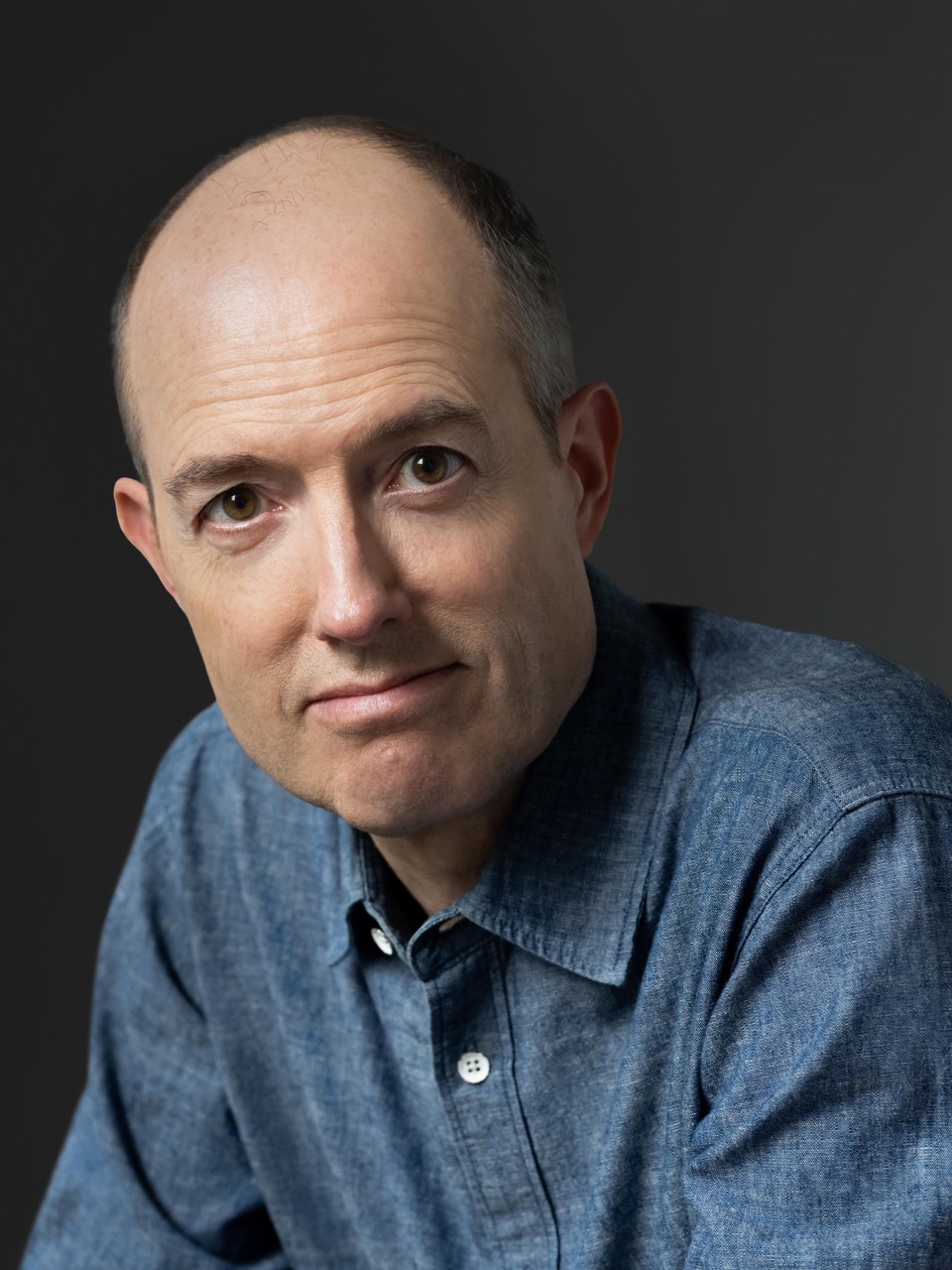 |
|
| Adam Haslett (photo: Beowulf Sheehan) |
|
Adam Haslett is the author of Imagine Me Gone, finalist for the Pulitzer Prize and the National Book Critics Circle Award, and winner of the Los Angeles Times Book Award; You Are Not a Stranger Here, finalist for the Pulitzer Prize and the National Book Award; and Union Atlantic, winner of the Lambda Literary Award and shortlisted for the Commonwealth Prize. His fourth work of fiction is Mothers and Sons (Little, Brown, $29; reviewed in this issue).
Where did the idea for Mothers and Sons come from?
I had a sense of needing to write about social isolation, which so many people contend with now--more than ever in our history--and how that relates to people being overworked. The causality runs in both directions: some people avoid their isolation by overworking, some people become isolated because they're required to work too much. So I began as I almost always do, with a character looking out a window, and started asking myself questions: Who is this person? What does he do for a living? Who is his family? Despite having gone to law school, I'd never written about a lawyer before, so Peter being an attorney fell into place early. Also early on I had an intuition of his being estranged from his mother, so I started asking myself why that might be. The window he was looking out of turned out to be that of an apartment I once lived in in Lower Manhattan with a view of Trinity Church. From there, I just inched forward.
Why did you decide that Peter's perspective would be relayed in first person and his mother's perspective would be in third person?
I'm usually suspicious of first person, present tense because it's a straitjacket for the writer in terms of moving the narrative forward, but in this case it was the only tense and point of view that made sense for Peter. Precisely because he is so buried in his work, and in many ways doesn't even realize that he is. He can't see into the future, or much into the past either, at least at the beginning of the book. He spends his days assembling other people's narratives--his clients'--but disattends his own. His mother, Ann, is in many ways the opposite. She prizes intimacy, fellowship, spiritual discernment, and so has the kind of settled quality that lends itself to the more knowing voice of the third person and the past tense.
Assuming you weren't well-versed in immigration law to begin with, how did you go about researching this book, especially when it came to dramatizing the court cases?
A number of my friends from law school went on to do immigration work, so I'd had a view into that world going back to the early aughts, and I had done some volunteer intake work at immigration detention facilities around that same time. I didn't write anything about it then, but once I'd decided Peter would be an asylum lawyer, I started sitting in on immigration hearings at Federal Plaza in Manhattan. They're open to the public, though there was never anyone there except judges, lawyers, and immigrants. So it was basically observational research.
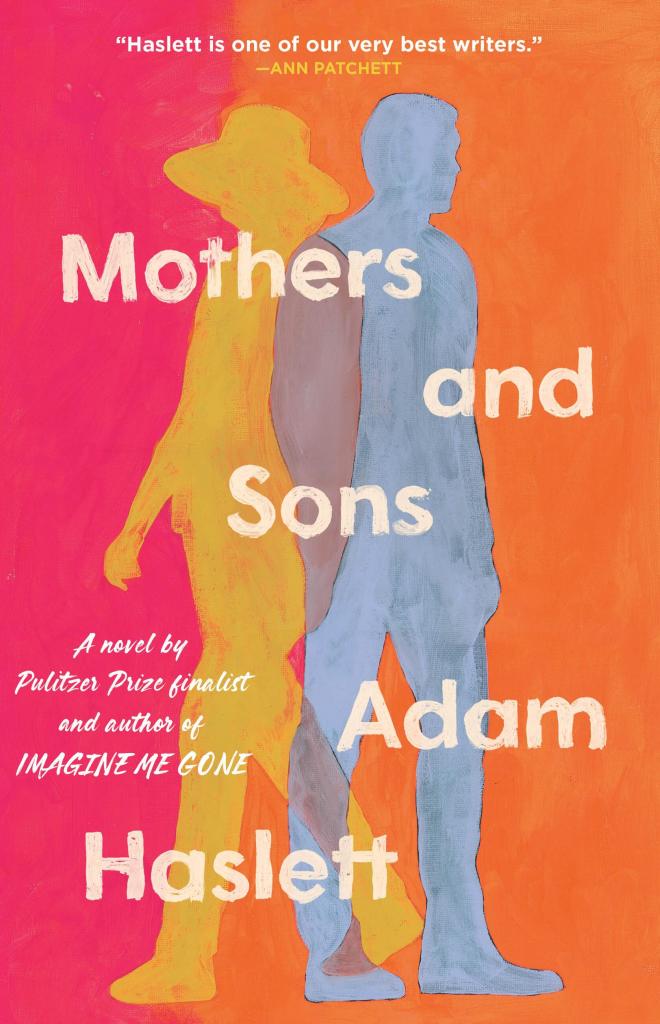 Likewise, did you research intentional communities in order to create Viriditas, the book's feminist spiritual retreat, or is Viriditas entirely homespun?
Likewise, did you research intentional communities in order to create Viriditas, the book's feminist spiritual retreat, or is Viriditas entirely homespun?
The mother of one of my oldest friends from high school actually did something similar to what Ann does in the book. She started a women's retreat center in Maine, which I visited on several occasions. She was someone I knew quite well. Ann's interior life and certainly her family past is entirely my invention, but I did borrow the external facts from the life of my good friend's mother.
Did you have the novel's ending, which is quite perfect, in mind the whole time, or was it hard-won?
I wrote that ending in the last two days before I had to turn in the final manuscript, so it was hard-won! I'd seen it coming, but hadn't been able to reach it, and then once I did, it was only a sketch. I hadn't filled it in to my or my editor Ben George's satisfaction, so on those last days I had one of those very rare, blessed experiences of arriving just in time at what I believed the book needed.
What was the most difficult creative decision you had to make while writing Mothers and Sons?
It was very hard to figure out how to get at Peter's somewhat numb affect. Usually you're trying to make a character vivid, but Peter isn't vivid to himself. Eventually, largely out of frustration, I began writing what turned out to be the opening sections of the book in the courtroom in more or less the same tone as those hearings are in fact conducted. And I discovered that in that very rhythm--an inadvertently callous and somewhat hectic monotony--I'd found a way to enact rather than simply describe his internal state.
If the Internet is to be believed, the shortest period between your books was the six years between the novels Union Atlantic, from 2010, and Imagine Me Gone, from 2016. Do your ideas simply take a while to gestate, or do you give yourself a breather between writing projects? Or do you write a draft right away and then spend years massaging its sentences?
I am indeed slow. Oddly enough, I usually do have some seed of the next book at least soon after I finish the previous one, but then it just takes years of writing, and going down a lot of blind alleys, to even arrive at what, in retrospect, comes to seem like the real beginning, when the thing has quickened, you know you've got something, and then the work gets both more intense but also more gratifying as you push on toward something that will satisfy you by the end. I never write a complete draft. I inch forward, chapter by chapter, editing as I go, and only write the ending at the very end (see above).
What question do you wish an interviewer would ask you, either about this book or about yourself as a writer, and how would you answer?
I wouldn't have said this as a younger writer, but now I like the idea of answering the question, What role does pleasure and/or satisfaction play in the process of writing a book? And I'd answer by saying, early on, it didn't play a large enough role. The self-critical and judgmental voices in my head crowded out the experience of simply writing a sentence the rhythm of which was pleasing to my ear. That's what I love when I read--hearing well-struck sentences, experiencing their satisfactions--so if my job is to write sentences (and that is how I think of it), then why not at least allow oneself the play and the pleasure when you manage that feat well? On the good days, I do that more now than I used to. --Nell Beram
Book Candy
Book Candy
CrimeReads considered "thrillers in the time of smartphones."
---
Mental Floss suggested "15 words you think you're pronouncing correctly (but you're probably not)."
---
"Laurie Anderson's mind-blowing performance of C.P. Cavafy's poems 'Waiting for the Barbarians' & 'Ithaca,' " courtesy of Open Culture.
Rediscover
Rediscover: Joseph Monninger
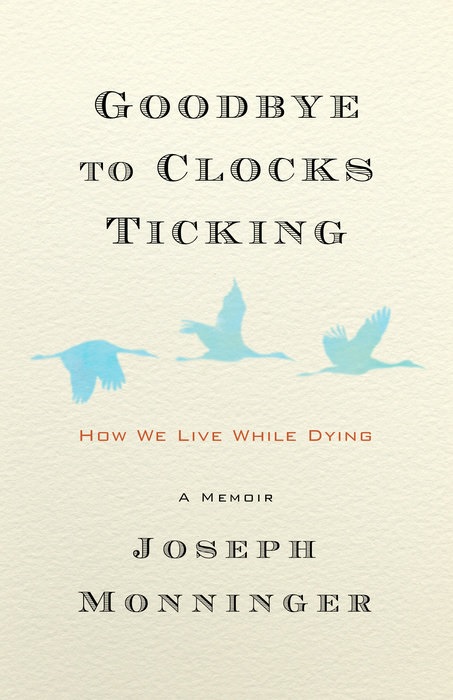 Joseph Monninger, author of more than 30 books and a former English professor, died January 1 at age 71. Monninger's books include many novels for adults and young readers and three works of nonfiction. His most recent title, Goodbye to Clocks Ticking: How We Live While Dying, published by Steerforth Press in 2023, is an elegant, meditative account of how in 2021 he received a diagnosis of inoperable lung cancer and a life expectancy of four months, but, because of an unusual gene mutation, was able to take a drug that gave him a new lease on life. (See our review here.)
Joseph Monninger, author of more than 30 books and a former English professor, died January 1 at age 71. Monninger's books include many novels for adults and young readers and three works of nonfiction. His most recent title, Goodbye to Clocks Ticking: How We Live While Dying, published by Steerforth Press in 2023, is an elegant, meditative account of how in 2021 he received a diagnosis of inoperable lung cancer and a life expectancy of four months, but, because of an unusual gene mutation, was able to take a drug that gave him a new lease on life. (See our review here.)
Monninger's writing appeared in many publications, including American Heritage, Scientific American, the Boston Globe, Glamour, Playboy, Sports Illustrated, and Ellery Queen. He received two fellowships from the National Endowment for the Arts as well as a fellowship from the New Hampshire Council for the Arts. He was also a longtime English professor at Plymouth State University in Plymouth, N.H., and an avid fly fisherman.
Steerforth Press senior editor Chip Fleischer said, "When Steerforth published just one of Joe's many books back in 2006, we became friends and stayed friends. When I received a brief e-mail from him in the fall of 2021 asking if I'd consider his latest project for Steerforth, I was delighted. When I opened the attached file and read--'I'm dying.'--my heart sank. But as I continued to read, my spirit soared. Joe would go on to produce a book-length contemplation of how to live well that eschews the platitudes, pablum, and sentimentality that so often find their way into works about death and loss. Joe was all about doing, and since writers write, he was also about telling. Goodbye to Clocks Ticking drove home for me the simple fact that we are all dying, every minute of every day, in ways that have enriched my existence immeasurably. I will be forever grateful for his example, and for his friendship."
In October, Steerforth will publish a new edition of his 2006 book, Two Ton, about a heavyweight boxing match between Joe Louis and Tony Galento, under the new title Fight Night 1939: The Champ, the Challenger, and a Portrait of America on the Brink.


